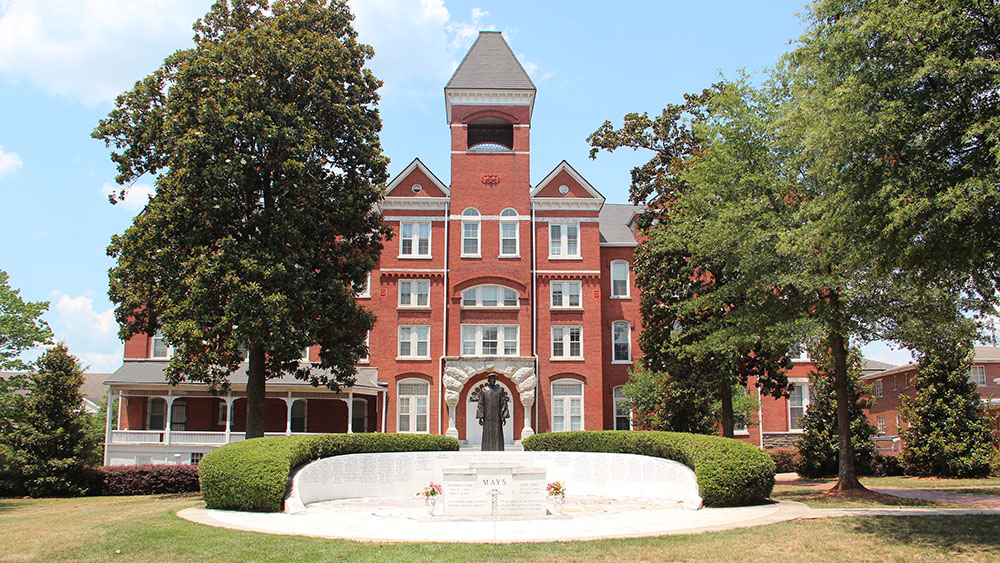Twitter recently lit up overnight when a Morehouse College student spoke out about his experience of sexual assault at the hands of a faculty member. The college’s egregious mishandling of the assault may have been shocking to some members of the public. To me, it was just another corroboration of a heartbreaking reality: Morehouse fails student survivors. I know because they failed my son.
The summer after his freshman year, my son was sexually assaulted by the professor running his study abroad program. We have reason to believe that the faculty member who committed the assault, Dr. Robert Peterson, was a known abuser — known also to Morehouse.
There is evidence that long before Peterson came into his position in Morehouse’s study abroad program, long before he began his harassment of my son on an international flight, he was known to behave inappropriately with his students.
Immediately upon returning from the trip where the assault occurred, a fellow faculty member raised concerns about Peterson’s behavior with students, including my son. Those that were told chose inaction.
The trauma rippled out into my son’s life, causing him to withdraw from the world around him. His previously strong grades dropped.
I tried, again and again, to track down administrators to discuss accommodations for my son’s worsening mental health. Phones rang unanswered, and my emails languished in inboxes. Eventually, when it began to feel like the entire Morehouse administration was actively ignoring him, my son left the college.
Despite it all, my son still wanted to go back to Morehouse. That December, after a period of hospitalization, he re-enrolled for the spring semester. He also filed a formal complaint to the Morehouse Title IX Office, detailing the assault and its impact. Weeks passed without a word; the college would later claim never to have received this complaint. Meanwhile, Peterson remained on campus, spending each day among students.
All my son has ever asked for was the opportunity to learn — something that is both his right and his passion. My son resubmitted his complaint, and it would take them over a year to finally confront it.
An investigation would conclude what we already knew: my son was assaulted by the professor while under the care of the college. Even if Morehouse’s administrators believed my son, they’d already proven that they didn’t consider it the college’s responsibility to help him.
This was more than a failure of educational bureaucracy. It was a human failure, a matter of apathy. The impact of that cold indifference on my son’s life has been enormous, and it will continue to echo.
Morehouse is, and has always been, a men’s college. But the makeup of its student body does not nullify the need for a comprehensive response to sexual assault. For administrators to assume so is a dangerous error, rooted in institutional homophobia.
Narratives of survivor justice tend to focus on the experiences of women survivors — and white women in particular. Indeed, the majority of perpetrators of sexual assault are men, and the majority of their victims are women. But that’s just part of the story. In fact, men and boys are still more likely to survive sexual assault than to perpetrate it; one in six men will survive sexual assault in their lifetimes.
The misapprehensions underlying Morehouse’s response can’t change the law. In my son’s case, it was Morehouse’s responsibility to make sure that they adequately investigated existing concerns when they were first brought to their attention. It was their responsibility to follow their own procedures, and to ensure that those procedures complied with the law.
Title IX protects students’ equal access to education regardless of sex. That also means that students who experience harassment or assault must not face barriers to their education. Accommodations must be made to ensure that survivors are able to continue learning in a safe and supportive environment.
Last fall, Secretary of Education Betsy DeVos proposed changes to the Title IX rules that would force schools to ignore much of sexual harassment and assault, including much of off-campus conduct. At a time when many educational institutions already abdicate their responsibility to ensure survivors are supported, letting schools off the hook for the safety of their students is a move in the wrong direction.
Morehouse was once my son’s dream — a dream he and hundreds of other boys carried onto campus as freshmen six years ago. As an institution of higher learning governed by Title IX, and as an HBCU, Morehouse made a promise to empower its students, to give them the skills they’d need to encounter the world.
Now, thanks to the courage of student survivors, the rest of the country is beginning to see what my family has known for years: how often, and how cruelly, that promise is broken.
____
W.K. is a mother and survivor justice advocate.
